Maurice Bloch annual lecture series
SHW is funded through a Maurice Bloch Endowment to arrange around 10 lectures each year – including one delivered by an international speaker and one by a European speaker – on the topic of "Medicine in relation to the community".

All lectures take place during SHW's core meeting hours (10.00am to 4.00pm) and are open to both staff and students. We aim to achieve gender balance and ethnic diversity both in our choice of speaker and in event chairs.
With consent, we record lectures for the benefit of colleagues who are unable to attend and make them available on this webpage.
Forthcoming lectures
Maurice Bloch Annual Lecture Series Prof Mala Rao (30 April 2025)
We are pleased to invite you to: Health and Wellbeing Maurice Bloch Annual Lecture Series
Title: Addressing planetary health and health inequalities - everyone's business and everyone's responsibility
Date: Wednesday 30 April 2025 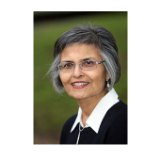
Time: 10.15-11am
Presenter: Prof Mala Rao
Chair: Dr Claire Niedzwiedz
Register on Eventbrite
If you cannot attend in person but would like to join online please do so with this zoom link https://uofglasgow.zoom.us/j/85404496046?pwd=TEFtcGwvSjg1NmVqOFYyUkcyQk9idz09
Meeting ID: 854 0449 6046 Passcode: 718380
Abstract:
to follow
BIO:
Professor Mala Rao is a Senior Clinical Fellow at the Department of Primary Care and Public Health, Imperial College London, Medical Adviser to NHS England on Workforce Race Equality, and Vice Chair, WaterAid UK. In her early career, Dr. Rao spent 17 years as an NHS consultant, and later Director of Public Health for her county. She underpinned her public health practice with research, audit, and development. In 1997, she established England’s first evidence-based cancer network, having persuaded 120 clinicians in her Health Authority to work with her towards this common goal. Dr. Rao has worked closely with the Indian and UK governments, the World Health Organization, frontline health staff at primary health centers and hospitals, and other organizations to reform health care policies and practice with benefits to millions of disadvantaged people. In 2003, she became the Head of Public Health Workforce for England, at the Department of Health, London. Her ‘Teaching Public Health Networks’ program has evolved into the UK Healthy Universities Network. Dr. Rao is globally recognized for championing climate change action and raising awareness of its impacts on women’s health, and access to safe water and sanitation. She instigated and co-edited the ‘Health Practitioner’s Guide to Climate Change’. Dr. Rao is widely published and is the recipient of a number of awards, including being made an Officer of the British Empire by the Queen in 2013 for services to public health in the UK and overseas.
Maurice Bloch Annual Lecture series Dr Rebecca Richmond (28th May 2025)
Title: Examining the causal role of circadian rhythms and sleep in physical and psychological health
Presenter: Dr Rebecca Richmond, MRC Integrative Epidemiology Unit, University of Bristol
Chair: Dr Donald Lyall
Date: Wednesday 28th May 2025
Time: 1-2pm, tea & coffee from 12.30pm
Location: room 103AB, Clarice Pears building. Zoom link available on registration
Abstract
Circadian rhythms are endogenous near-24-hour rhythms which regulate physiological processes. When healthy, they are entrained to the external world. When the circadian clock is misaligned, this manifests as disruptions to the sleep-wake cycle and sleep disorders. Poor sleep is a common phenomenon with approximately one third of adults reporting regular sleep problems. Sleep characteristics have been associated with a number of physical and mental conditions but whether this represents a causal role of sleep is often unclear.
My research harnesses detailed sleep and circadian measures from self-reported questionnaires, 24-hour actigraphy and electronic health records in large-scale biobanks which can be linked with genomic and molecular data and disease outcomes.
I use a range of methodologies (e.g. Mendelian randomization, longitudinal analyses, natural experiments, family-based designs) to evaluate the causal role of sleep and circadian rhythm disruption in the development of cardiovascular disease, diabetes, neurodegenerative disease and some forms of cancer.
My research also aims to uncover underlying molecular mechanisms and to identify potential public health, behavioural and therapeutic targets for intervention.
Past lectures
Maurice Bloch Annual Lecture Series Dr Alessandro Massazza (26 February 2025)
We are pleased to invite you to: Health and Wellbeing Maurice Bloch Annual Lecture Series
Title: The triple planetary crisis and mental health: impacts, interventions, and policies 
Date: Wednesday 26 February 2025
Time: 1-2pm, tea and coffee will be served beforehand at 12.30pm
Presenter: Dr Alessandro Massazza
Chair: Dr Claire Hastie
Venue: 103B Clarice Pears Building
If you cannot attend in person but would like to join online please do so with this zoom link https://uofglasgow.zoom.us/j/85404496046?pwd=TEFtcGwvSjg1NmVqOFYyUkcyQk9idz09
Meeting ID: 854 0449 6046 Passcode: 718380
Abstract:
The interconnected challenges of climate change, pollution, and biodiversity loss are impacting our health now. However, while the physical health impacts from infectious diseases to respiratory conditions are increasingly being recognized, the mental health impacts are often less visible. This lecture will first provide an overview of how the triple planetary crisis of climate change, pollution, and biodiversity loss are impacting mental health through multiple different pathways. It will then outline existing solutions that can help us to mitigate and adapt to these negative impacts. Finally, it will introduce how mental health considerations can be integrated into existing climate and environmental policy mechanisms and discussions.
BIO:
Dr. Alessandro Massazza works as a Policy & Advocacy Advisor at United for Global Mental Health where he manages a portfolio of projects on the intersection between climate change, the environment, and mental health. He has an academic background working on mental health and psychosocial support in settings affected by adversity. After a period working on mental health in humanitarian settings for the World Health Organization HQ, he moved to the Wellcome Trust where he supported initiatives at the intersection of climate change and mental health. He is passionate about data, science, and evidence.
Maurice Bloch Annual Lecture Series Darren McGarvey (29 January 2025)
We are pleased to invite you to: Health and Wellbeing Maurice Bloch Annual Lecture Series
Title: The Trauma Industrial Complex - Oversharing in the Age of Lived Experience 
Date: Wednesday 29 January 2025
Time: 1-2pm, tea and coffee will be served beforehand at 12.30pm
Presenter: Mr Darren McGarvey
Chair: Prof Vittal Katikireddi
Venue: 103B Clarice Pears Building
Register on Eventbrite: MB D McGarvey
If you cannot attend in person but would like to join online please do so with this zoom link https://uofglasgow.zoom.us/j/85404496046?pwd=TEFtcGwvSjg1NmVqOFYyUkcyQk9idz09
Meeting ID: 854 0449 6046 Passcode: 718380
About the speaker:
Darren McGarvey is a writer, columnist, broadcaster, social commentator and hip hop recording artist (Loki).
Darren grew up in Pollok on the south side of Glasgow, and has lived through extreme poverty, addiction and homelessness. Between 2004 and 2006 he wrote and presented eight programmes on social deprivation for BBC Radio Scotland. Since then he has been a regular contributor to the BBC, STV and other national media, and currently has a weekly column in The Scotsman. In 2009, he founded Volition Scotland, an organisation that was designed and run by the young people who used it. He was part of the Poverty Truth Commission that was hosted in Glasgow in the same year. McGarvey became the Violence Reduction Unit’s first ever ‘Rapper-in Residence’ in 2015 and continues to work across Scotland in some of its most challenged communities.
In November 2017 his first book “Poverty Safari” was published, and was an instant bestseller and critical hit, making the Sunday Times top ten bestseller lists and receiving plaudits from national newspapers and magazines. He won the prestigious ‘Orwell Book Prize’ in June 2018.
Darren’s latest book “The Social Distance Between Us” was published in 2022, serialised on BBC Radio 4 (listen here) and led to him giving a prestigious '“Reith Lecture” in November 22 on the “Freedom from Want.
He was recently inducted as Fellow of the Royal Society of Literature which deemed his books on social inequality to be of 'outstanding literary merit'.
He has presented three series of shows for BBC Scotland, “Darren McGarvey’s Scotland”, “Darren McGarvey’s Class Wars” and “Darren McGarvey’s Addictions” and his new series, “The State We’re In” can be seen on both BBC Scotland and BBC2 now.
Maurice Bloch Annual Lecture Series Prof Sarah Armstrong (27 November 2024)
We are pleased to invite you to: Health and Wellbeing Maurice Bloch Annual Lecture Series
Title: Can prison research ever be ethical? 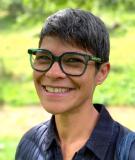
Date: Wednesday 27 November 2024
Time: 1-2pm, tea and coffee will be served beforehand at 12.30pm
Presenter: Prof Sarah Armstrong
Chair: Dr Sharon Greenwood
Venue: 103B Clarice Pears Building
If you cannot attend in person but would like to join online please do so with this zoom link https://uofglasgow.zoom.us/j/85404496046?pwd=TEFtcGwvSjg1NmVqOFYyUkcyQk9idz09
Meeting ID: 854 0449 6046 Passcode: 718380
Abstract:
After 20 years of conducting research in and about prisons, the ethical challenges have been stacking up. This talk provides an opportunity to reflect on these and to consider more broadly the ethical implications of research on groups labelled vulnerable, especially those in contexts of confinement. I will touch on some of these, including: the ‘gratefulness narrative’ where qualitative research on prisons almost uniformly produces positive feedback about interventions; some controversial thoughts about lived experience and its increasing visibility in policy discourses; and, the trauma-causing potential of trauma-informed work with vulnerabilised people. I will try and end by moving towards some uplifting ethical principles of research.
BIO:
I am a Professor of Criminology and former director of the Scottish Centre for Crime and Justice Research (in the School of Social and Political Sciences) at the University of Glasgow. My current research includes a book project on the bureaucratic violence of prison and, as part of a bigger team, a study of deaths in custody and their investigation in Scotland. The latter includes exploration of suicide and drug overdose deaths as well as critical interrogation of deaths attributed to natural causes.
Maurice Bloch Annual Lecture Series Dr Louise Stone (9 October 2024)
We are pleased to invite you to: Health and Wellbeing Maurice Bloch Annual Lecture Series
Title: "The "lady doctor" problem: medical misogyny and its impacts in Australia. 
Date: Wednesday 9 October 2024
Time: 1-2pm, tea and coffee will be served beforehand at 12.30pm
Presenter: Dr Louise Stone
Chair: Prof Rosalind Searle
Venue: 103B Clarice Pears Building
Watch and listen to the lecture here
Abstract:
Mental illness is unevenly distributed in Australia, with a particular areas of need in rural communities. Unfortunately, there is a critical shortage of rural doctors, particularly in psychiatry. There is also a worsening shortage of rural GPs, particularly female GPs. Mental health work in General Practice rests disproportionately on female doctors, and the financial and psychosocial burden of this work is increasing. Patients with deep and complex trauma, patients with disabilities and patients with personality vulnerabilities have difficulty accessing other mental health services in rural Australia, and so rely on their GPs for care.
Young female GPs feel underprepared for the complexity of mental health care they are required to provide. Unfortunately, this means burnout and frank mental illness in this cohort is high. Despite this, rural Australia boasts some extraordinary clinicians, consumers and other health professionals, and I'll be introducing you to a few (including Kate, who works as a GP surgeon in Antarctica and Olga, who flies her little pink plane around Western Australia).
I'll present the evidence for the disproportionate clinical load on female GPs, including the professional and personal consequences for female GPs in their first five years post fellowship. Many women doctors are becoming unwell in the wake of increased workload and moral distress. There is an unacceptably high rate of sexual harassment, bullying and racism that falls disproportionately on doctors who live with disprivilege. In this presentation, I'll outline the work detailed in our international book on sexual harassment of doctors, by doctors, highlighting some of the international solutions to this wicked problem.
If we are to sustain the critical workforce of women GPs, we need to consider strategies to support them educationally, personally and professionally.
If you cannot attend in person but would like to join online please do so with this zoom link https://uofglasgow.zoom.us/j/85404496046?pwd=TEFtcGwvSjg1NmVqOFYyUkcyQk9idz09
Meeting ID: 854 0449 6046 Passcode: 718380
BIO:
Professor Louise Stone is an Australian GP with clinical, research, teaching and policy expertise in mental health. She has led GP training in Australia in the past, and has worked in rural, remote and urban settings, including with the famous Royal Flying Doctor Service. In her policy work, she has worked with Federal, State and local governments, and non-government agencies on mental health, doctors' health and primary care. She is known for her writing, and during the pandemic, she wrote extensively to support young GPs who were struggling with the clinical and emotional load of caring for patients and family during the pandemic.
Louise has research interests in medically unexplained symptoms, young people's mental health and doctors' health. She is beginning a research program entitled "I love my work, but it's time to go" exploring the experiences of female GPs who have left the profession due to overwhelm, moral distress and financial stress in the wake of the pandemic. She is leading a text on mental health generalism, with a team of GP experts. Her edited volume "Sexual harassment of doctors, by doctors: healing the culture of medicine across the world" is to be published by Cambridge University Press in early 2025. She is working with Professor Rosalind Searle as a co-editor and 76 authors from 25 countries.
Louise lives and works as a GP in Canberra, Australia. She is Professor at the University of Adelaide Medical School and Associate Professor at the Australian National University and the University of Melbourne. Her website is dr.louise.stone@wordpress.com
Maurice Bloch Annual Lecture Series Dr Andrew Rundle (17 September 2024)
We are pleased to invite you to: Health and Wellbeing Maurice Bloch Annual Lecture Series
Title: Urban Design for Walkability and Cancer Prevention and Control 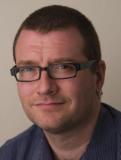
Date: Tuesday 17 September 2024
Time: 1-2pm, tea and coffee will be served beforehand at 12.30pm
Presenter: Dr Andrew G Rundle
Chair: Dr Jon Olsen
Venue: Room 103A Clarice Pears building.
Abstract:
The urban design concept of walkability describes a series of urban design features theorized to promote engagement in pedestrian activity, and a growing body of research indicates that higher neighborhood walkability is associated with greater physical activity and lower adiposity among residents. There is also emerging data that show that higher neighborhood walkability is also associated with lower risk for the health consequences of obesity and sedentary lifestyles. This lecture will describe recent work on neighborhood walkability and resident’s physical activity patterns and will present data showing that higher neighborhood walkability is associated lower risk of obesity related cancers and lower weight, and less weight gain, among cancer survivors.
If you cannot attend in person but would like to join online please do so with this zoom link https://uofglasgow.zoom.us/j/85404496046?pwd=TEFtcGwvSjg1NmVqOFYyUkcyQk9idz09
Meeting ID: 854 0449 6046 Passcode: 718380
BIO:
Dr. Andrew Rundle is a Professor of Epidemiology in the Columbia University Mailman School of Public Health. He directs the Built Environment and Health Research Group (beh.columbia.edu), a trans-disciplinary team of researchers studying how neighborhood built, economic, business and social environments influence health, particularly for issues related energy balance and obesity risk. He and his colleagues have been studying how urban design that supports physical activity affects the incidence, and outcomes, of obesity related cancers.
His work on built environments has been used as part of the scientific rationale for the New York City ‘Active Design Guidelines’ which refocuses urban design and architecture to support physical activity, for the Mayor’s Food Policy Task Force’s ‘Food Retail Expansion to Support Health’ (FRESH) initiative, the International WELL Building Institute’s WELL Building and WELL Community design standards and the Center for Active Design’s Fitwel certification program.
Maurice Bloch Annual Lecture Series Prof Lord Richard Layard (29 May 2024)
School of Health and Wellbeing Maurice Bloch Annual Lecture Series 
Title: Wellbeing as the Goal of Government
Presenter: Prof Lord Richard Layard
Date: Wednesday 29 May 2024
Time: 1-2pm, tea and coffee will be served from 12.30pm
Venue: Room 103AB Clarice Pears Building, 90 Byres Road, G12 8TB this event will be delivered by Zoom, please join us in person in the room or by zoom (zoom link avaiable on registration)
Chair: Prof Jonathan Evans
Register here: on Eventbrite
Watch and Listen to the Lecture here
Abstract
I will first set out the case for having people’s wellbeing as the overarching goal. This implies that public funds should go to whom the wellbeing benefits are highest relative to the cost. This involves a whole set of new priorities, including more attention on mental health.
Bio
Richard Layard is the founder-Director of the Centre for Economic Performance - a leading inter-disciplinary research centre at the London School of Economics. He is currently co-Director of their Community Wellbeing programme.
Layard is an economist who wants public policy to be targeted at the wellbeing of the people. To this end he has written 6 books and some 40 articles. The first book, Happiness: Lessons from a new science (2005) was translated into 20 languages. The most recent (co-authored) book Wellbeing: Science and Policy is a field-defining textbook, showing how wellbeing science can supplement traditional economics by providing a more complete account of what affects human wellbeing.
Since 2005 he has directed a research programme to develop this evidence base. Many of the results can be found in the co-authored book The Origins of Happiness (2018), as well as in numerous articles. He is also a founding co-editor of the annual World Happiness Report.
He has also had substantial influence on public policy. In 2000 he was appointed a member of the House of Lords. In 2007 he persuaded the British government to develop a large programme of psychological therapy (IAPT, now NHS Talking Therapies), which treats 700,000 patients a year. In 2010 he influenced the UK government to measure wellbeing as a national statistic – using questions later recommended by the OECD to its member countries.
In addition to all this, he has co-founded two organizations targeted at wellbeing. Action for Happiness (founded in 2010) is a grassroots movement to promote a happier way of living. It now has over half a million members. The World Wellbeing Movement (founded in 2022) is a ‘top-down’ organisation to persuade decisionmakers to make wellbeing their priority. In these various ways Richard has been trying to promote the use of evidence to increase wellbeing.
Before that, his focus as a labour economist, was on unemployment and inequality. His analysis of unemployment with Stephen Nickell was widely used in Europe as the basis for employment policy. And before that he made significant contributions to the economics of education.
Richard is currently immersed in a major study of value-for-money across the whole field of public expenditure, where value is measured in terms of wellbeing. He considers this the next key step forward in wellbeing science.
Maurice Bloch Annual Lecture Series Dr Suzanne Zeedyk (17 April 2024)
School of Health and Wellbeing Maurice Bloch Annual Lecture Series
Title: The Science of Connection – Real life stories of school transformation as a result of public engagement efforts
Presenter: Dr Suzanne Zeedyk
Date: Wednesday 17 April 2024
Time: 1-2pm, tea and coffee will be served from 12.30pm
Venue: Room 103B, Clarice Pears building, 90 Byres road, Glasgow, G12 8TB
Chair: Mrs Dawn Haughton
Register here: on Bookitbee zoom link available on registration
Watch and Listen to the Lecture here
Abstract
The Science of Connection enables us to see how deeply wired human beings are for relationships. Even as newborn infants we possess the biological, neurological, physiological capacity for detecting connection (and disconnection) with others. The sciences of attachment and childhood trauma have helped us to understand how experiences of other people shape human development. Dr Suzanne Zeedyk, developmental psychologist at the University of Dundee for twenty years, will share the story of how she took her expertise in this area out to the public, finding strategies to help them to engage with the discoveries of developmental researchers. She will focus in particular on sharing stories of schools in Scotland who have engaged with this material, thereby boosting their confidence in placing relationships at the centre of their practice and policy. These stories matter because there is still much doubt in our overwhelmed education system about the effectiveness of trauma-informed policies. Dr Zeedyk’s real life stories of schools and early years settings help us to see where some of the barriers lie in implementing research knowledge. This talk will treat us to a fascinating journey of the translation of science for the public
Bio
Dr. Suzanne Zeedyk is a research scientist fascinated by babies’ innate capacity to connect. Since 1993, she has been based at the University of Dundee (Scotland), within the School of Psychology, where she now holds an Honorary Post. In 2011, she stepped away from a full-time academic post in order to establish an independent training enterprise, the aim of which is to help the public understand what science now understands about the importance of emotional connection for human health and happiness. She works internationally with organisations keen to think more deeply about fostering connection, compassion and resilience. In the last 5 years, more than 40,000 people have attended her speaking events. Suzanne’s core aspiration is to strengthen awareness of the decisions we take about caring for our children — because those choices are integrally connected to our vision for the kind of society we wish to build. More information is available on www.suzannezeedyk.com.
Maurice Bloch Annual Lecture Series Dr Rachael Wood (19 March 2024)
School of Health and Wellbeing Maurice Bloch Annual Lecture Series
Title: Building and using Scotland's national data for research on maternal and child health: Opportunities and Challenges
Presenter: Dr Rachael Wood
Date: Tuesday 19 March 2024
Time: 4-5pm, tea and coffee will be served from 3.30pm
Venue: Room 103AB Clarice Pears Building, 90 Byres Road, G12 8TB
Chair: Prof David McAllister
Abstract
Rachael Wood is a Consultant in Public Health Medicine in Public Health Scotland, and an Honorary Professor of Maternal and Child Public Health in the University of Edinburgh. She has many years’ experience in developing and using national health data for research. She will present an overview of recent developments in national data relating to maternal and child health. She will provide illustrative examples of research projects that have used these data, and reflect on current challenges and opportunities in this field.
Bio
Dr Wood works across the NHS and the University of Edinburgh. Within the NHS, Dr Wood is a Consultant in Public Health Medicine in Public Health Scotland. Within the University, she is an Honorary Reader in the Usher Institute.
Within Public Health Scotland, Dr Wood focuses on maternal and child health, and is inaugural director of Scotland's national congenital anomaly register (CARDRISS). Her role involves development of national data, overseeing national statistics publications, providing information to support health policy and service development and evaluation, and supporting the use of Public Health Scotland data for research purposes.
Within the University, Dr Wood conducts research on maternal and child public health. She has particular topic interests in congenital anomalies and child development. She has particular methodological interests in the use of routine administrative data for research.
Prior to her current roles, Dr Wood held a CSO Clinical Academic Training Fellowship at the University of Edinburgh from 2007 to 2011. During her fellowship she undertook a PhD examining changes made to Scotland’s child health programme in 2005. Dr Wood graduated in Medicine from the University of Edinburgh in 1993.
Maurice Bloch Annual Lecture Series Prof Beverly Bergman (28 February 2024)
School of Health and Wellbeing Maurice Bloch Annual Lecture Series
Title: "Arms and the Mind - An Innovative Approach to Mental Trauma in the First World War"
Presenter: Prof Beverly Bergman
Date: Wednesday 28 February 2024
Time: 1-2pm, tea and coffee will be served from 12.30pm
Venue: Yudowitz seminar room, Wolfson Medical School building, University Avenue, G12 8QQ
Chair: Prof Ewan MacDonald
Watch and listen to the video here
Abstract
The First World War saw unprecedented numbers of personnel in uniform, often in appalling conditions or working long hours under extreme pressure. As the war progressed, the scale of mental health consequences began to emerge. Traditional treatments often proved ineffective in dealing with combat trauma. Told through the stories of some of the doctors who treated the patients, the remarkable Lady Clementine Waring, who was awarded a CBE for her war work, and some of the patients themselves, this talk will explore how a unique collection of heraldic shields found at a former convalescent home for wounded officers in the Scottish Borders revealed a novel treatment for mental trauma in the First World War. Follow-up after the war shows that many recovered well from their experiences and went on to lead successful lives. The talk will be illustrated with personal photographs and recollections, as well as the shields themselves, and some surprising discoveries!
Bio
Paul Dolan is Professor of Behavioural Science in the Department of Psychological and Behavioural Science at the LSE, and Director of the Executive MSc in Behavioural Science.
Three decades of research have focused on developing ways to better measure and value the richness of the human experience. He has worked extensively with policy-makers and private companies, and he has been featured on various forms of media given his commitment to making acadenic research more accessible to the general public.
He is author of the Sunday Times best-selling book “Happiness by Design”, and “Happy Ever After”. He is creator and presenter of the podcasts "Duck - Rabbit" and "Get Happier". He is also the Founder of the Lifetime Wellbeing Cooperative™ and is currently writing a book about how to reduce polarisation.
Expertise Details: Field experiments; happiness; public policy; wellbeing; behavioural economics
Maurice Bloch Annual Lecture Series Prof Paul Dolan (31 January 2024)
School of Health and Wellbeing Maurice Bloch Annual Lecture Series
Title: TBC
Presenter: Prof Paul Dolan
Date: CANCELLED
Time: 1-2pm, tea and coffee will be served from 12.30pm
Venue: Room 102, Clarice Pears building, 90 Byres Road, Glasgow, G12 8TB.
Chair: Prof R O'Connor / Prof E McIntosh
Abstract
to follow
Bio
Paul Dolan is Professor of Behavioural Science in the Department of Psychological and Behavioural Science at the LSE, and Director of the Executive MSc in Behavioural Science. Three decades of research have focused on developing ways to better measure and value the richness of the human experience. He has worked extensively with policy-makers and private companies, and he has been featured on various forms of media given his commitment to making academic research more accessible to the general public. He is author of the Sunday Times best-selling book “Happiness by Design”, and “Happy Ever After”. He is creator and presenter of the podcasts "Duck - Rabbit" and "Get Happier". He is also the Founder of the Lifetime Wellbeing Cooperative™ and is currently writing a book about how to reduce polarisation.
Expertise Details: Field experiments; happiness; public policy; wellbeing; behavioural economics
Maurice Bloch Annual Lecture Series Prof Cherie Armour (29 November 2023)

School of Health and Wellbeing Maurice Bloch Annual Lecture Series
Title: What do we talk about when we talk about Trauma? Exploring trauma measurement and outcomes.
Presenter: Prof Cherie Armour
Date: Wednesday 29 November 2023
Time: 1-2pm, tea and coffee will be served from 12.30pm
Venue: Room 103A Clarice Pears Building, 90 Byres Road, G12 8TB
Chair: Prof Beverly Bergman
Register here: on Eventbrite zoom link available on registration
Abstract
To follow
Bio
Professor Cherie Armour is a Professor of Psychological Trauma & Mental Health. Cherie focuses on an array of risk and resilience factors that promote either psychological difficulty or psychological wellness after experiencing potentially traumatising events. Cherie is particularly interested in those who have experienced trauma as part of their occupational role or those experiencing maltreatment in childhood. Recently, Cheries research has focused on mechanisms promoting post-adversity resilience. She has published over 200 papers, secured millions of pounds in external grant income, and presented several keynotes at conference across the world. Professor Armour has a particular passion for mentoring and coaching early career researchers.
Maurice Bloch Annual Lecture Series Dr Manuela Marescotti (25 October 2023)
School of Health and Wellbeing Maurice Bloch Annual Lecture Series
Title: Gender representation in science publication: evidence from Brain Communications
Presenter: Dr Manuela Marescotti
Date: Wednesday 25 October 2023
Time: 1-2pm, a light lunch will be served from 12.30pm
Venue: Kelvin Hall Lecture Theatre, 1445 Argyle St, Glasgow G3 8AW
Chair: Dr Donald Lyall
Register here: on Eventbrite livestream link available on registration
Watch and Listen to the Lecture here
Abstract
The persistent under representation of women in Science, Technology, Engineering, Mathematics, and Medicine (STEMM) points to the need to continue promoting awareness and understanding of this phenomenon. Being one of the main outputs of scientific work, academic publications provide the opportunity to quantify the gender gap in science as well as to identify possible sources of bias and areas of improvement.
Brain Communications is a ‘young’ journal founded in 2019, committed to the transparent publication of rigorous work in neuroscience, neurology, and psychiatry. We analysed the gender of authors and reviewers of almost 800 manuscripts received by the journal, and overall we observed that women were less represented than men among authors (35.3%) and invited reviewers (31.3%).
Moreover, a considerably higher proportion of women was found in first authorship (42.4%) than in last authorship positions (24.9%). The representation of women authors and reviewers decreased further in the months following COVID-19 restrictions, suggesting a possible exacerbating role of the pandemic on existing disparities in science publication. The proportion of manuscripts accepted for publication was not significantly different according to the gender of the first, middle or last authors. Thus, we did not find evidence of gender bias within the review or editorial decision-making processes at Brain Communications.
Bio
Early on, I developed an interest in genetics that led me to study Biotechnology at the University of Naples "Federico II". Then, I obtained a Ph.D. in neuroscience at the University of Edinburgh, specialising myself in using fruit flies to study neurodegenerations. Over the years, I had the opportunity to work on research projects both in academia and industry, with the likes of Prof. Douglas Armstrong and Prof. Jamie Davies. As I am a person that is looking always for new challenges, while carrying on my project in Davies lab, I am starting a career in academic publishing working with the great neuroscientist Prof. Tara Spires-Jones for the Brain Communications journal.
Maurice Bloch Annual Lecture Series Dr Damian Milton (27 September 2023)
School of Health and Wellbeing Maurice Bloch Annual Lecture Series
Title: Autism and the double empathy problem: A phenomenological perspective 
Presenter: Dr Damian Milton
Date: Wednesday 27 September2023
Time: 1-2pm, a light lunch will be served from 12.30pm
Venue: Kelvin Hall Lecture Theatre, 1445 Argyle St, Glasgow G3 8AW
Chair: Dr Louise Beattie
Watch and Listen to the Lecture here
Abstract
In literature written about autism there has traditionally been a focus on perceived deficits in relation to social communication, social interaction and repetitive and ritualistic behaviours. What is written on the subject is often negative in its narrative with interventions designed to improve normative ‘social skills’ and reduce or stop repetitive behaviours. In this presentation, a phenomenological ‘inside-out’ approach is taken that views social communication and interaction as a reciprocal and socially situated issue and that views repetitive behaviours in terms of stress, prediction, flow states and an ‘interest model’ of autism. The presentation will then go on to look at support strategies such as the low-arousal approach that can help autistic people in practice.
Bio
Damian works part-time for the Tizard Centre, University of Kent as a Senior Lecturer in Intellectual and Developmental Disabilities. Damian also has been a consultant for the Transform Autism Education (TAE) project and numerous projects for the Autism Education Trust (AET). Damian’s interest in autism began when his son was diagnosed in 2005 as autistic at the age of two. Damian was also diagnosed with Asperger’s in 2009 at the age of thirty-six. Damian’s primary focus is on increasing the meaningful participation of autistic people and people with learning disabilities in the research process and chairs the Participatory Autism Research Collective (PARC).
Maurice Bloch Annual Lecture Series Prof Jason Leitch (30 August 2023)
School of Health and Wellbeing Maurice Bloch Annual Lecture Series
Title: Leadership in the Pandemic 
Presenter: Prof Jason Leitch
Date: Wednesday 30 August 2023
Time: 1-2pm, a light lunch will be served from 12.30pm
Venue: Room 103AB Clarice Pears Building, 90 Byres Road, G12 8TB
Chair: Dr Claire Hastie
Watch and Listen to the Lecture here
Abstract
The tension at the heart of great leadership will always be – “Is this the right decision?” – a question asked regularly during the COVID-19 pandemic. In Scotland the course taken was steered by senior clinical advisors and those leading in Public Health. In this presentation, Scotland’s National Clinical Director, Professor Jason Leitch CBE, explains how decisions were taken during a very difficult period in everyone’s lives. Jason gives the back story of how he and other senior leaders dealt with the day-to-day challenges of preparing political leaders to make difficult decisions that they knew would be extremely unpopular. This advice, they realised, would cause economic and social harm but they knew too that the health and survival of the nation was paramount. The audience will learn about what set Scotland apart from the rest of the UK during those challenging months. Jason will explain how clear and direct communication helped the nation understand why Public Health advice had to be heeded.Using social media (and a flipchart and pen) he taught the nation about concepts like the “R” number and “viral variants”. These short easy-to-understand videos quickly went viral, shared far beyond the borders of Scotland. To reach audiences and to help with understanding the decisions that were being made around Public Health messaging, Jason regularly appeared on youth and community radio stations, football radio programmes and in online school events. He was the voice that people heard delivering Public Health advice, appearing in television adverts and as a guest on many news programmes. He wrote to schools, parents, business owners and spiritual leaders - always trying to alleviate fear and delivering the messages. to help keep Scotland safe.These lessons in mass and crisis communications offer an enormous resource for Public Health practitioners in handling future emergencies. This lecture is a unique glimpse into what it was like, professionally and personally, for Scotland’s National Clinical Director and others when they were dealing with the global pandemic.
Bio
Jason has worked for the Scottish Government since 2007. In January 2015, he was appointed as The National Clinical Director in the Health and Social Care Directorate.
Jason is an Honorary Professor at the University of Dundee. From 2005 to 2006 he was a Quality Improvement Fellow at the Institute for Healthcare Improvement, in Boston, sponsored by the Health Foundation. Jason is also a trustee of the UK wing of the Indian Rural Evangelical Fellowship which runs orphanages in southeast India.
He qualified as a dentist in 1991 and was as a Consultant Oral Surgeon in Glasgow. He has a doctorate from the University of Glasgow, a Masters in Public Health from Harvard and is a Fellow of the Royal College of Surgeons of England, the Royal College of Physicians and Surgeons of Glasgow and the Royal College of Surgeons of Edinburgh. He is also a Fellow of the Higher Education Academy.
Maurice Bloch Annual Lecture Series Prof Peter Dahler-Larsen (21 June 2023)
School of Health and Wellbeing Maurice Bloch Annual Lecture Series
Title: Can we change evaluation systems? 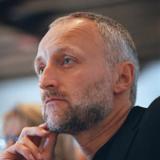
Presenter: Prof Peter Dahler-Larsen
Date: Wednesday 21 June 2023
Time: 1-2pm
Venue: Kelvin Hall LT
Chair: Dr Nai Rui Chng
Watch and Listen to the Lecture here
Abstract
One of the most dominant trends in the field of evaluation in recent years is the institutionalization of evaluation under headlines such as “evaluation culture,” “evaluation policy,” and “evaluation systems.” With systematic evaluation, the benefits of evaluation may increase, but so may its costs, risks, and constitutive effects.
There has been little interest in how evaluation systems can be changed, modified, or improved, not to mention deinstitutionalized, if necessary. What are our options? For example, can a variety of stakeholders deliberate about the consequences of an evaluation system, and can it lead to policy change?
Bio
Peter Dahler-Larsen, PhD and dr scient pol., is professor at the Department of Political Science, University of Denmark. He is the author of “The Evaluation Society” (Stanford University Press”), “Quality. From Plato to Performance” (Palgrave) and editor of “A Research Agenda for Evaluation.” (Elgar). He is past president of European Evaluation Society and honorary member of the Danish Evaluation Society.
Prof Ethel Nakimuli-Mpungu (31 May 2023)
School o Health and Wellbeing Maurice Bloch Annual Lecture Series
Title: The Mind and Body Connection - Findings from Group Support Psychotherapy Research among Persons Living with HIV in Uganda  Presenter: Prof Etheldreda Nakimuli-Mpungu
Presenter: Prof Etheldreda Nakimuli-Mpungu
Date: Wednesday 31 May 2023
Time: 1-2pm
Venue: Room 103B, Clarice Pears Building, 90 Byres Rd. This talk will be delivered remotely but we welcome you to join us for some lunch and view the lecture in room 103B with Prof Helen Minnis chairing the lecture.
Chair: Prof Helen Minnis
Watch and Listen to the Lecture here
Abstract
This public lecture explores the intricate relationship between mental and physical health, focusing on findings from group support psychotherapy research among persons living with HIV in Uganda. Persons living with HIV often face unique mental health challenges, such as depression, post-traumatic stress and anxiety, which exacerbate HIV-related physical symptoms and impacts overall health outcomes. Group support psychotherapy has emerged as an effective, culturally sensitive first-line psychological intervention that provides a safe and supportive environment for depressed individuals to share experiences and develop social connections, coping strategies and income generation skills.
The lecture highlights the positive impact of group support psychotherapy on mental health outcomes among persons living with HIV in Uganda, including improved social support, coping skills and income generation coupled with reduced symptoms of depression, anxiety, and stigma. Furthermore, improvements in mental health are associated with enhanced physical health outcomes, such as improved treatment adherence, and better viral suppression. These findings underscore the importance of addressing mental health as part of a comprehensive approach to overall health and well-being among individuals living with HIV. Implications for mental health care among persons living with HIV in Uganda and beyond include emphasizing the importance of integrating culturally sensitive mental health interventions into existing HIV care platforms, and allocating resources to mental health infrastructure. By investing in mental health care and promoting interventions such as group support.
Bio
Dr. Etheldreda Nakimuli-Mpungu is currently an associate professor of psychiatry at Makerere University in Kampala, Uganda. She works toward making psychotherapy more culturally appropriate, particularly for people living with HIV and depression. She has developed a highly cost-effective group support psychotherapy program that can be delivered by lay health workers and which has been shown to dramatically reduce depression symptoms and improve anti-viral medication adherence and viral suppression in those affected. Her research earned her the 2016 Elsevier Foundation Award, and a Presidential National Independence Medal of Honor on 8 March 2016 – International Women's Day. Recently, she was listed among the BBC 100 most inspiring and influential women in 2020. She completed her medical degree and Master of Medicine in Psychiatry at Makerere University in 1998 and 2006 respectively. In 2012, she attained a doctoral degree in psychiatric epidemiology from Johns Hopkins University, USA. Her work has been published in the Lancet HIV and Lancet Global Health. She has received funding from MQ: Transforming Mental Health, Grand Challenges Canada, the United Nations Programme on HIV/AIDS, United States Agency for International Development (Development Innovation Ventures), and the Child Relief International Foundation.
Dr Laurie Tomlinson (26 April 2023)
School of Health and Wellbeing Maurice Bloch Annual Lecture Series
Title: Observational data to inform clinical guidelines – how far can we go?
Date: Wednesday 26 April 2023
Time: 1-2pm, a light lunch will be served beforehand at 12.30pm
Presenter: Dr Laurie Tomlinson
Chair: Prof David McAllister
Venue: Room 103AB, Clarice Pears Building, 90 Byres Rd, G12 8TB
Watch and Listen to the Lecture here
Abstract:
Clinical guidance has historically been based on randomised clinical trial evidence. However, there are areas of important need where treatment recommendations cannot be made due to lack of robust evidence to inform them. In the UK we are fortunate to have a wealth of routinely-collected healthcare data which can be used to study important health questions such as the effects and safety of prescribed drugs, which may be particularly important when there is uncertainty despite trial evidence. The data are also rapidly available, low cost to analyse, and provide evidence about drug effects in the whole population. However, concerns about sources of bias and confounding in routine healthcare data currently limit its use. In this talk I will discuss examples of policy-relevant research from COVID-19 and beyond, and consider the barriers to wider use of observational data in guidelines.
If you cannot attend in person but would like to join online please do so with ZOOM HERE
Dr Adam Burley (29 March 2023)
School of Health and Wellbeing Maurice Bloch Annual Lecture Series
Title: Shining a Light on the Invisible: Relational trauma, injury and access to care.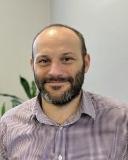
Presenter: Dr Adam Burley
Date: Wednesday 29 March 2023
Time: 1-2pm (a light lunch will be provided 30 minutes beforehand)
Venue: 103AB, Clarice Pears Building, 90 Byres Road, Glasgow, G13 8TB
Watch and Listen to the lecture here
Chair: Prof Andrea Williamson
Abstract & Bio
This talk will argue that we are relational beings from cradle to grave, and that all human activity is, at its core, relational in nature. This is particularly relevant in the area of health care; it being a relationship between a group of people trying to seek care, and a group of people trying to provide it. When all goes well in this relationship then healthcare can happen and those on both side of the care relationship can benefit. Trauma, neglect and other forms of developmental mistreatment also occur within relationships, and can give rise to relational injuries that have both acute and chronic consequences for the individual - particularly when seeking care. This can give rise to a double disadvantage as the individual is both in need of care, but their core ailment makes it difficult or impossible for them to access it. On the other side of the relationship, the relative invisibility of relational injuries means that health care services rarely if ever recognise their presence, and as such do not make the sort of accommodations and adaptations typically provided for more visible physical injuries. This talk will explore these themes in an attempt to shine a light on the invisible, but often life limiting experiences of those people who have severe difficulties in the relationship with care itself.
Adam works as a Consultant Clinical Psychologist at Simon Community Scotland, a service dedicated to the provision of care to individuals who struggle to access mainstream care, as well as providing input to a wide range of public and third sector organisations across the homeless sector. He graduated from St. Andrews University in 1994 with a psychology degree, before completing a doctorate in clinical psychology in Edinburgh in 1998. He subsequently worked in New Zealand, establishing a clinical psychology service in a rural district working with marginalised populations, before returning to Scotland in 2004 to develop the homeless clinical psychology and psychotherapy service which he currently runs. He has a particular interest in health inequalities, exclusion dynamics, early years and the psychology of adversity.
Professor Camara Jones (8 December 2022)
School of Health and Wellbeing Maurice Bloch Annual Lecture Series
Title: “Confronting Racism Denial: Naming Racism and Moving to Action” 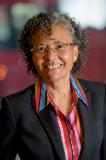
Presenter: Professor Camara Phyllis Jones, MD, MPH, PhD
Date: Thursday 8 December 2022
Time: 1-2pm (a light lunch will be provided 40 minutes beforehand at LR2, 1 Lilybank Gardens G12 8RZ)
Venue: Yudowitz Seminar room, Wolfson Medical School building, University Avenue G12 8QQ
Chair: Professor Vittal Katikireddi
Watch and Listen to the lecture here
Abstract & Bio
Racism is a huge roadblock to achieving health equity in the United States and globally, yet many people are in staunch denial of its continued existence and profoundly negative impacts on health and well-being. Even those who acknowledge that racism exists sometimes feel ill-equipped to say the word “racism” out loud or to take action to address it.
Professor Jones will share four of her allegories on “race” and racism to illuminate four key messages:
• Racism exists
• Racism is a system
• Racism saps the strength of the whole society
• We can act to dismantle racism
Recognizing that racism saps the strength of the whole society through the waste of human resources, she aims to inspire and equip all listeners to engage in sustained anti-racism work.
Camara Phyllis Jones, MD, MPH, PhD is a family physician, epidemiologist, and Past President of the American Public Health Association whose work focuses on naming, measuring, and addressing the impacts of racism on the health and well-being of the United States and the world. She is currently a Leverhulme Visiting Professor in Global Health and Social Medicine at King’s College London.
Professor Jones was the 2021-2022 Presidential Chair at the University of California, San Francisco. She taught six years at the Harvard School of Public Health, served fourteen years at the US Centers for Disease Control and Prevention, and was a 2019-2020 Radcliffe Fellow at Harvard University and a 2021 Presidential Visiting Fellow at the Yale School of Medicine. She continues as an Adjunct Professor at the Rollins School of Public Health, Emory University and as a Senior Fellow and Adjunct Associate Professor at the Morehouse School of Medicine.
Her allegories on "race" and racism illuminate topics that are otherwise difficult for many people across the globe to understand or discuss. Recognizing that racism saps the strength of the whole society through the waste of human resources, she aims to inspire and equip all communities to engage in sustained anti-racism work with three tasks: Name racism. Ask “How is racism operating here?”. Organize and strategize to act.
Dr Scott Duncan (4 October 2022)
School of Health and Wellbeing Maurice Bloch Annual Lecture Series
Title: Integrating time-use epidemiology into physical activity research: Examples and future applications.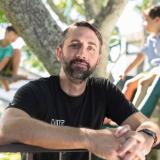
Presenter: Prof Scott Duncan
Date: Tuesday 4 October 2022
Time: 1-2pm (a light lunch will be provided 40 minutes beforehand, in LR2, 1 Lilybank Gardens, G12 8RZon the corner of Great George st)
Venue: Boyd Orr building, 412 LTB Level 4 Boyd Orr Building University Avenue
Chair: Dr Greig Logan
Watch and listen to the lecture here
Abstract & Bio
Scott Duncan is a Professor of Population Health at the Auckland University of Technology in New Zealand. His work focuses on the measurement and promotion of physical activity and wellbeing in people of all ages. He has a particular interest in the impact of the built environment on healthy active living.
In this talk, Professor Duncan will introduce the emerging field of time-use epidemiology and its relevance to the measurement and promotion of physical activity. He will share examples of recent work from the Growing Up in NZ Study, NZ’s largest longitudinal study of child development, and Te Hotonga Hapori (Connecting Communities), a five-year natural experiment in urban renewal and community wellbeing. Potential future applications of sensor-based time-use assessment methods will be discussed.
Dr Owen Nkoka (28 September 2022)
School of Health and Wellbeing Lecture
Title: Expanding the understanding of Long-Term Conditions and Multimorbidity in Rural Malawi 
Presenter: Dr Owen Nkoka
Date: Wednesday 28 September 2022
Time: 1-2pm
Venue: Online - zoom link in registration
Register: SHWONkoka
Chair: Prof Mia Crampin
Abstract
Long-term conditions (LTCs) such as diabetes, hypertension, HIV, and stroke are becoming increasingly important. Many people with chronic diseases have multiple LTCs (multimorbidity). The understanding of LTCs and multimorbidity is limited in low-income settings. In Malawi, we are implementing a Healthy Lives Malawi (HLM) project aimed at creating an intergenerational longitudinal population study of chronic conditions in rural and urban Malawi. The talk provides an overview of the evidence being generated under the LTC Survey in Malawi. Topics will include: (1) Sleep patterns and physical and mental health correlates. (2) The prevalence, distribution, and determinants of multimorbidity. (3) Comparative analysis of diabetes and hypertension prevalence between 2013/15 and 2021/22 in rural Malawi
Dr Peter MacPherson (9 September 2022)
School of Health and Wellbeing Maurice Bloch Annual Lecture Series
Title: Accelerating reductions in tuberculosis and HIV in urban Africa 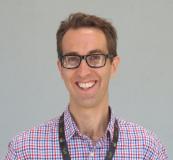
Presenter: Dr Peter MacPherson
Date: Friday 9 September 2022
Time: 12.20pm for a light lunch which will be offered in LR2, 1 Lilybank Gardens, (on the corner of Great George st).
Venue: LR2, 1 Lilybank Gardens, (on the corner of Great George st) G12 8RZ
Chair: Prof Jill Pell
Watch and listen to the lecture here
Abstract
Dr Peter MacPherson, Liverpool School of Tropical Medicine & Malawi-Liverpool-Wellcome Clinical Research Programme
In Africa, progress towards eliminating tuberculosis and HIV—among the world’s leading infectious killers—has been too slow and has been severely impacted by COVID-19.
Gains in HIV/TB treatment conceal large disparities. Cities—particularly densely-populated periurban settlements—are now the major foci of undiagnosed disease, yet are poorly served by health programmes, with considerable heterogeneity between neighbourhoods and population groups. Targeting screening, treatment, and prevention interventions to these populations could rapidly reduce undiagnosed infection, accelerating reductions and improving health throughout the whole city.
In this presentation, Dr Peter MacPherson will give an overview of thirteen years of high-resolution surveillance research for HIV and tuberculosis in urban Africa, integrating innovative epidemiological and geospatial disease surveillance tools. He will summarise recent HIV and TB community cluster randomised trials he has led that have informed 2021 WHO guidelines, and that have clearly shown that new approaches to accelerating HIV and TB elimination are needed.
Bio
Dr Peter MacPherson is a Public Health Physician and Reader in Population Health at the Liverpool School of Tropical Medicine, UK. He is based full-time in Blantyre, Malawi, where he is Head of the Public Health Research Group. He holds honorary positions as Professor of Population Health at the London School of Hygiene and Tropical Medicine, and as Consultant in Communicable Disease Control with the UK Health Security Agency.
Peter holds a five-year Wellcome Clinical Research Career Development Fellowship. His research focuses on the development and evaluation of interventions to improve the diagnosis and treatment of diseases of major public health importance in sub-Saharan Africa, particularly tuberculosis and HIV. He is currently Principal Investigator of the PROSPECT Study, a randomised trial evaluating the effectiveness of computer-aided tuberculosis diagnosis, using artificial intelligence software to interpret chest X-rays. He is also Principal Investigator on the HomeACF Study, a household cluster-randomised trial of intensified contact screening for tuberculosis and HIV in two provinces of South Africa.
Peter’s research also has a strong emphasis on using modern statistical and epidemiological methods for inference, particularly including Bayesian statistics, causal inference, and geospatial epidemiological analysis. He leads several large consortia investigating novel methods for surveillance of infectious diseases in resource-limited settings.
Prof Robert Insall (31 August 2022)
School of Health and Wellbeing Maurice Bloch Annual Lecture Series 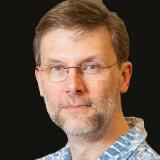
Title: Deep learning - what it is, what it can & can’t do for medicine, how it works, and how it’s evolving
Presenter: Prof Robert Insall
Date: Wednesday 31 August 2022
Time: 1-2pm (a light lunch will be provided 30 minutes beforehand)
Venue: Kelvin Hall Lecture theatre
Chair: Prof J Lewsey
Watch and listen to the lecture here
Abstract
Artificial intelligence has become one of the key technologies in medicine, and becomes more important every year. Deep learning is one of the most important AI methods, particularly when dealing with images or movies. In this talk I will introduce deep learning, with a particular focus on people who are expert in a biomedical area but not in AI. I will discuss how it works, at a nontechnical but functional level, the differences between traditional computational approaches and deep learning, how networks are trained, and which areas they are ineffective at, excel at, and will hopefully excel at in the future. The aim is to help you decide whether deep learning could help you, and if so how to start.
Dr Dorairaj Prabhakaran (30 June 2022)
School of Health and Wellbeing Maurice Bloch Annual Lecture Series
Title: “ What are the innovations to address the epidemic of cardiovascular diseases?’
Presenter: Dr Dorairaj Prabhakaran 
Date: Thursday 30 June 2022
Time: 12.30 - 1.30pm (a light lunch will be provided beforehand)
Watch and Listen to the lecture here
Chair: Prof Vittal Katikireddi
Bio
Professor D. Prabhakaran is a cardiologist and epidemiologist by training. He is an internationally renowned researcher and is currently the Vice President - Research & Policy, Public Health Foundation of India, Executive Director of Centre for Chronic Disease Control, New Delhi, India and Professor (Epidemiology) London School of Hygiene and Tropical Medicine, UK. In addition he holds Visiting Scientist position at Harvard School of Public Health, position of International Fellow at McMaster University, Canada and Madhu and Hari Varshney Visiting Professorship at Simon Fraser University, Canada. He is also the Head of the WHO collaborating Centre for Surveillance, Capacity building and Translational Research in Cardiometabolic Diseases in South East Asia region. He was elected as Fellow of the Royal College of Physicians (London) in 2011 and Fellow of the National academy of Sciences, India in 2011. He is currently the chair of the Science committee of the World Heart Federation.
His work spans from mechanistic research to understand the causes for increased propensity of cardiovascular diseases (CVD) among Indians, to developing solutions for CVD through translational research and human resource development. He has received funding from NHLBI, Wellcome Trust, European Commission and several other international and national funding bodies. He has mentored over 50 post-doctoral and doctoral students so far. He has authored several chapters and over 550 scholarly papers with an H index of 98. He has been listed as the topmost researcher in Medicine in India in terms of publications for the years 2009-2014 by Scopus and Department of Science & Technology, Government of India and recently listed among the top 2% of World’s researchers by the Stanford University with a very high ranking in Medicine and Cardiology. Recognising his contribution to Indian Science, he was elected as a fellow of the Indian National Science Academy, the highest science academy of India. He has won several awards and accolades, including the Quality Champion by the Quality Council of India.
His exceptional contributions spanning Science, Medicine and Public Health has catapulted the field of Preventive Cardiology in India and the Low and Middle-income countries.
Prof Jay Kaufman (25 May 2022)
School of Health and Wellbeing Maurice Bloch Annual Lecture Series
Title: “How to Break Something by Fixing It” 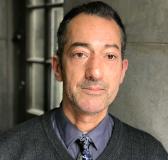
Presenter: Prof Jay Kaufman
Date: Wednesday 25 May 2022
Time: 1-2pm
Watch and Listen to the lecture here
Chair: Prof Ruth Dundas
Abstract
Centres of population health research, like University of Glasgow’s Institute of Health & Wellbeing, are enriched by the interface
between disciplines and the exchange of methods and ways of thinking from one academic culture to another. One of the
more interesting and dynamic interfaces at places like the IHW is between epidemiology and economics, fields with rich but
distinct traditions of data analysis and causal discovery. I will describe some of the differences in worldview between these
fields, and then illustrate with the handling of clustering, as both an analytic challenge (hierarchical data) and as a design
strategy (matching). Causal tools from one discipline reveal the limitations and dangers of the practices that characterize the
other. I review the good, the bad and the ugly from fixed effects designs like exposure-discordant siblings, and how insights from
both epidemiology and economics balance the pros and cons of this method in health research.
Dr Jess Potter (27 Apr 2022)
School of Health and Wellbeing Maurice Bloch Annual Lecture Series
Title: Conceptualising access to healthcare: Candidacy – a revised formulation 
Presenter: Dr Jess Potter
Watch and Listen to the lecture here
Chair: Prof Kate O'Donnell
Abstract
Healthcare access is of central importance to early disease detection and treatment thus affecting the health and well-being of individuals and populations. However, researching healthcare access is hampered by lack of a broadly applicable conceptual understanding. In this seminar we will discuss what is meant by 'healthcare access' and consider the methods available to study it. In particular, we will focus on 'candidacy' - a construct derived from a critical interpretive synthesis of literature on health service accessibility for vulnerable groups by Dixon-Woods and colleagues. The authors’ description of how an individual becomes a candidate for care facilitates a complex understanding of healthcare access as a dynamic, contextual, social process. Reviewing literature which has applied candidacy and bringing in analysis of my PhD research exploring migrants' experiences of accessing healthcare in the UK, I draw out an extended and abstracted formulation of candidacy. The empirical data I draw upon includes 14 biographic narrative interviews with migrants and 10 in-depth interviews with health service gatekeepers.
Prof Roger Halliday (30 Mar 2022)
School of Health and Wellbeing Maurice Bloch Annual Lecture Series
Title: How Research Data Scotland is creating the conditions to innovate with data.
Presenter: Prof Roger Halliday
Date: Wednesday 30 March 2022
Time: 1-2pm
Watch and Listen to the lecture here
Chair: Prof Ruth Dundas
Abstract
Research Data Scotland has been established to simplify access to and use of data that is connected around a person, place or business. It is doing this to drive systematic data innovation with the aim of improving economic, social and environmental wellbeing, delivering precision public health, and reducing inequalities. Professor Roger Halliday will talk through where we currently are, and the plans to speed up access to data, widen the range of data, and of services, and think through what this means may be possible in future.
Bio
Roger Halliday started as Chief Statistician in November 2011. Before that, he worked in the Department of Health in England as a policy analyst managing evidence for decision making across NHS issues.
He qualified with a degree in statistics in 1993 from St. Andrews University and joined the Government fast stream as an assistant statistician. He worked for various UK Government Departments and at the Scottish Government in a number of statistical and policy making roles. His areas of expertise are around transforming services with data, and has experience working in the fields of health, children, learning, skills and the economy.
Prof Robin Dunbar (23 Feb 2022)
School of Health and Wellbeing Maurice Bloch Annual Lecture Series
Title: Friendship and Health
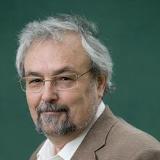
Watch and Listen to the lecture here
Date: Wednesday 23 February 2022
Time: 1-2pm
Chair: Dr S Letina
Abstract
Friendships have a bigger effect on our psychological health and wellbeing, as well as our physical health and wellbeing, than anything else we can do. Friendships are, however, extremely expensive to create and to maintain, both in terms of the time we have to invest in them and in terms of their underpinning neuropsychology. These set limits on the numbers of friends we can have, and how they benefit us. I’ll explore the behavioral, cognitive and neurobiological bases of these limits, and how we vary in these respects.
Bio
I attended Magdalen College School, Brackley, and then went to Magdalen College to read PPP (Psychology & Philosophy), graduating in 1969. After completing a PhD on the behavioural ecology of primates at Bristol University, I went to Cambridge on a SERC Advanced Research Fellowship (URF). I subsequently held research and teaching posts at Stockholm University (Zoology), University College London (Anthropology) and Liverpool University (Psychology and then Biology) before returning to Oxford in 2007. I became Emeritus Fellow in 2017. In 2021, I was elected a Foreign Member of the Finnish Academy of Science & Letters.
My research focuses on the evolution of sociality in primates and other mammals (in particular, feral goats and klipspringer antelope). This has involved understanding the constraints on social group size, and the strategies that different species exploit to break through the glass ceilings these impose. This brings together understanding brain evolution, the relationship between brain regions, cognition and behaviour, the role of the neuroendocrines (in particular, endorphins) in social bonding, and the role of time as a climatically-driven constraint on grouping.
Prof Ronan Lyons (26 Jan 2022)
School of Health and Wellbeing Maurice Bloch Annual Lecture Series
Title: Using an advanced routine healthcare data systems to improve population health, clinical care and inform policy: the COVID-19 pandemic and beyond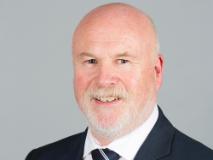
Presenter: Prof Ronan Lyons
Watch and Listen to the Lecture here
Date: Wednesday 26 January 2022
Time: 1-2pm
Chair: Prof David McAllister
Bio
Professor Lyons has more than 25 years’ experience in the use of linked data to support research and clinical processes to improve patient and population health. In 1993, he created the West Glamorgan Injury Surveillance System, which developed into the All Wales Injury Surveillance System. In 2006, wrote the grant that led to the creation of the well-known Secure Anonymised Information Linkage (www.saildatabank.com). He was PI of the Wales component of the Farr Institute from 2013-2018 and Director of the HDRUK Wales and Northern Ireland site and national director for public health research from 2018-2021. He was also Deputy Director of the ESRC funded Administrative Data Research Wales initiative and is currently Associate Director of the MRC funded Dementias Research Platform UK.
He is PI for the Wales Multimorbidy Cohort and its derivative, the MRC funded Controlling COVID (ConVOV) through Data Linkage platform, which supports policy relevant research in responding to the COVID-19 pandemic.
His presentation will describe the development of these systems and the establishment of vibrant Welsh, UK and international team science developments to answer important questions using diverse real world examples.

